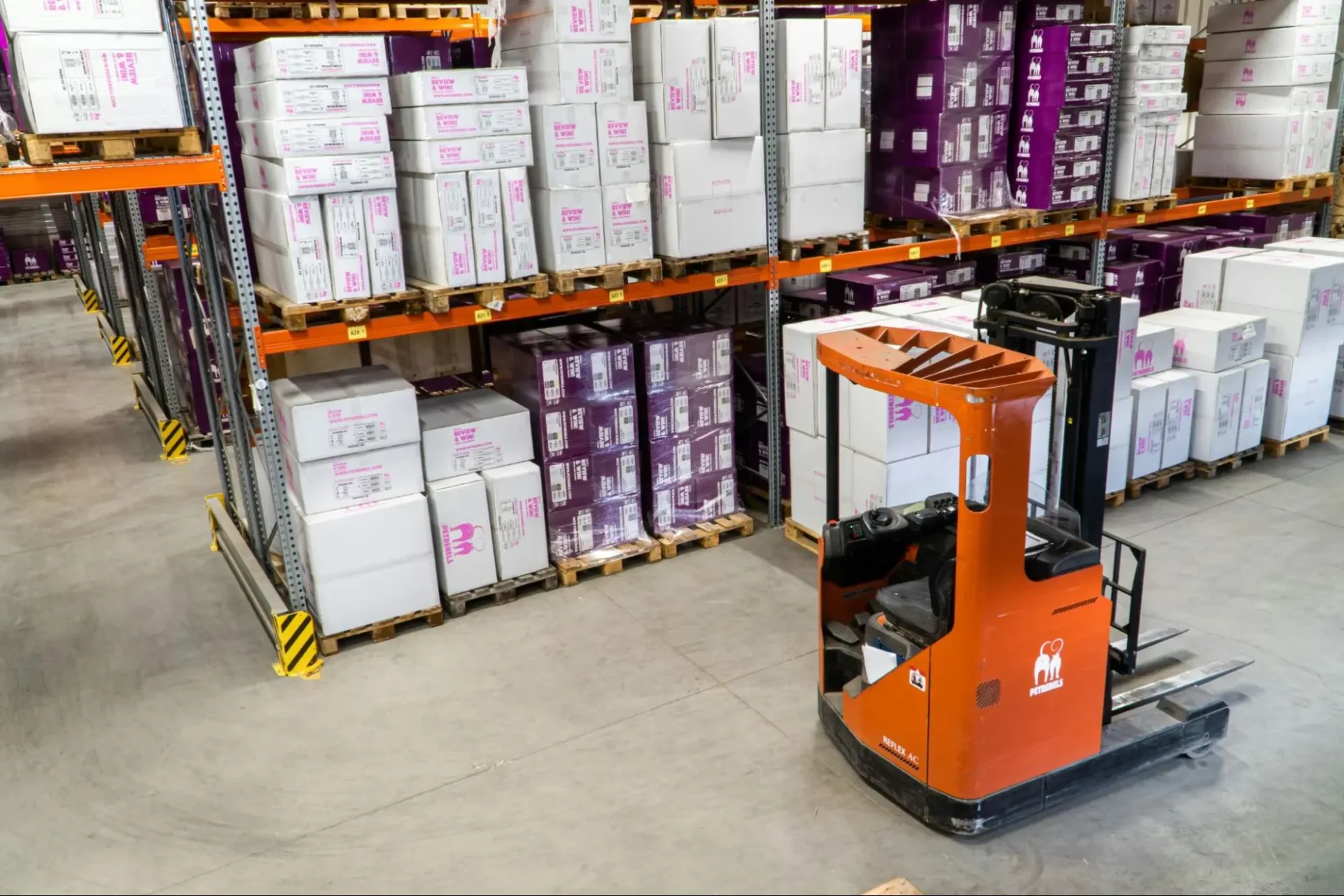Automated Inventory Management: A Complete Overview
Table of Content
Good inventory management is crucial for businesses because it involves keeping track of and controlling product ordering, storage, and usage. Without an effective inventory management solution, businesses face challenges such as inaccurate inventory control, inefficient supply chain management, and delayed order processing.
Inventory management solutions ensure that a business always has the right amount of stock to meet customer demand while minimizing costs associated with overstocking or stock-outs. However, even accomplishing these tasks requires significant effort and expense through manual labor, when it could be easily automated.
To address these challenges, automated inventory management systems have emerged as a powerful solution. These systems allow businesses to manage their inventory in real time, providing accurate and up-to-date information on stock levels. By defining specific rules and conditions, businesses can automate various inventory processes, ensuring precise management and freeing up resources to focus on more essential tasks.

How does an automated inventory management system work?
In the traditional setup, inventory management is often handled manually, involving labor-intensive tasks like counting stock, recording data, and managing reorder levels. This manual process is prone to errors, such as inaccurate stock counts, delayed data entry, and missed reorder points. This can lead to stockouts or overstocking. These inefficiencies result in lost sales, increased holding costs, and overall poor inventory visibility.
Automated inventory systems have brought about a revolution in stock tracking, supply management, and sales organization for modern retailers. These intelligent automated inventory solutions enable retailers to manage inventory in real time, facilitating timely and data-driven decision-making. For example, if a product’s stock level reaches its predetermined reorder threshold, the automated inventory system will automatically alert the relevant stakeholders. Thus ensuring a seamless replenishment process.
Moreover, automated inventory management systems seamlessly integrate with other essential retail management tools, such as order management or point-of-sale (POS) software. This integration is crucial for achieving real-time accuracy in inventory management. As it ensures that all sales across various channels are accounted for and reflected in the automated inventory system.
Benefits of Automated Inventory Management

Gain business-wide inventory visibility
Automated inventory management systems provide complete visibility into inventory levels across the entire organization. Unlike periodic inventory management, which requires scheduled physical stock takes to update inventory records, perpetual inventory management continuously tracks inventory movements. This transition allows businesses to access real-time insights on the location and allocation of goods.
With perpetual inventory management, updates occur instantly whenever a sale is made, stock is received, or an item is moved within the warehouse. This eliminates the need for time-consuming physical stocktakes and significantly reduces the risk of errors, ensuring that inventory data is always accurate and up-to-date.
Establish optimal stock levels
Achieving a balance between risking stock-outs and overstocking can be tricky. Automated inventory management systems help you predict sales demand based on historical data. With automated solutions, you can easily configure alerts for low-stock levels or when stock reaches the reorder point. These alerts are a cost-effective way to prevent stock-outs, eliminating the need for extra spending on monitoring or excess safety stock.
Keeping your stock within the optimal zone is a significant advantage of automated inventory management, especially as your business grows and introduces more product lines.
Improve supplier relationship management
Fostering healthy supplier relationships is crucial for keeping costs low and ensuring a resilient supply chain. The valuable supplier performance data collected by automated inventory management systems can aid in contract negotiations and decision-making, promoting stronger and more transparent partnerships with vendors.

Sustainable Revenue Growth
By ensuring that salespeople and channels operate at their maximum potential, automated inventory management systems contribute to sustainable revenue growth. Salespeople can close deals more effectively with real-time stock information, as it enables them to give customers accurate and up-to-date product availability and delivery details.

Improved Customer Satisfaction
Automated inventory management systems not only help in customer acquisition but also contribute to improved customer satisfaction rates. By facilitating fast order fulfillment and providing customers with comprehensive product information before making a purchase, these automated inventory solutions help build trust and loyalty among existing customers.
Simplifies multichannel order management
For businesses seeking new opportunities, expanding into new sales channels is a strategic move. However, managing orders across multiple channels can be a complex task. By seamlessly connecting different sales channels, automated inventory management systems streamline multichannel order management, allowing businesses to sell and manage products across online stores, point-of-sale systems, and B2B platforms.
Data-Driven Decision Making
Equipped with comprehensive business intelligence reporting tools, automated inventory management systems enable data-driven decision-making. These reports provide invaluable insights into product performance, channel effectiveness, sales team productivity, and regional trends, allowing businesses to make informed decisions that positively impact profit margins and drive growth.

Easily add new warehouses and SKUs
As businesses grow, the ability to add new warehouses and stock-keeping units (SKUs) becomes crucial. Automation solutions allow businesses to quickly and seamlessly add new warehouses and SKUs, minimizing disruptions and ensuring operational continuity.
Streamlined Operations and Waste Reduction
By automating tasks that consume valuable time and resources, automated inventory systems enable businesses to streamline their operations and minimize waste. This facilitates sustainable growth without overburdening employees or stakeholders, ensuring long-term success and profitability.

Reduced Staffing and Labor Costs
Improving operational efficiency is key to maximizing resources and reducing costs. Automated inventory management software empowers businesses to scale their operations without the need to employ dedicated supply chain experts or incur significant increases in wage bills, ultimately contributing to greater cost savings.
Selecting the Right Automated Inventory Management System
When it comes to implementing an automated inventory management solution, it’s crucial to choose the right system that aligns with your unique business processes. As you evaluate the various software options available, keep in mind the following key factors to ensure you make an informed decision.
Automatic reordering
Reordering is one of the most critical backend operations for any multichannel retailer, as it ensures that products are consistently available for customers to purchase. Automated inventory systems with reordering technology streamline this process. Look for a retail operations tool that offers stock notifications, customizable reorder levels, and vendor relationship management capabilities. This way, you can rest assured that your shelves are always stocked with the optimal inventory levels.
Automated stock transfer
If your inventory is spread across multiple locations or warehouses, automated stock transfer features can be invaluable. This functionality ensures that distributors can locate and access your stock in the right location to fulfill customer demand. Seek an automated inventory management system that offers automated transfer controls for maximum flexibility and efficiency.

Inventory alerts and notifications
In the fast-paced world of retail, you need a tool that keeps you informed every step of the way across all channels. Your automated inventory management system should provide comprehensive alerts and notifications covering various factors, such as low inventory levels, overstocks, and supplier or shipping delays. This real-time visibility empowers you to make informed decisions and proactively address potential issues.

E-Commerce integration
As a multichannel retailer, seamless e-commerce integrations are crucial for effective inventory management. To manage inventory effectively, you need to unify your inventory management process with the right data. Make sure that the automated inventory system you choose can easily integrate with other e-commerce management tools like POS or CRM systems.

Automated order management
By automating your order dispatch processes, you can identify and troubleshoot warehouse inefficiencies at the source. Find an inventory management system that automates dispatch tasks like barcode scanning, label printing, and optimizing delivery channels. These capabilities help retailers and wholesalers sort packages efficiently based on their delivery destinations, streamlining the order fulfillment process.
Streamlined store reporting
Last but not least, don’t compromise on reporting and analytics capabilities. These features are essential for making informed business decisions across your entire supply chain management process. Your automated inventory system should provide comprehensive real-time data and reporting. Thus enabling you to track and analyze various aspects of your inventory operations.
Summary
Automated inventory management is a critical component for businesses seeking to streamline operations, reduce costs, and enhance profitability. By implementing sophisticated automated inventory management systems, companies can gain real-time visibility into their inventory levels, optimize stock levels, and nurture stronger supplier relationships.
A normal company uses too many software solutions across different departments. Too much time goes into copying, moving, or syncing data from one system to another, if the integration is not natively supported by the participating software. Robylon AI can help here. We can create custom integrations across different software being used for inventory management, thus creating workflows, which the users can trigger or schedule, depending on the requirement.
A typical company relies on multiple software solutions in various departments. However, this leads to time-consuming tasks of copying, moving, or syncing data between systems if the integration is not supported by the software. Robylon AI allows users to create customized integrations across different software, enabling them to schedule workflows across multiple web-apps and tabs. Want to know more? Book a demo with us.







